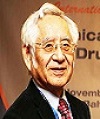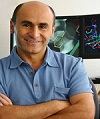
Pieter R. Cullis
Director
Life Sciences Institute, Director, NanoMedicines Research Group, UBC. University of British Columbia
Canada
Biography
Pieter R. Cullis, Ph.D. Director, Life Sciences Institute, University of British Columbia; Chair, Personalized Medicine Initiative; Professor, Department of Biochemistry and Molecular Biology, Director, NanoMedicines Research Group, UBC. Dr. Cullis and co-workers have been responsible for fundamental advances in the generation, loading and targeting of lipid nanoparticle (LNP) systems for intravenous delivery of small molecule drugs and macromolecular drugs such as small interfering RNA (siRNA). This work has contributed to three LNP products that have been approved by regulatory agencies in the U.S. and Europe for the treatment of cancer and its complications and six more that have finished Phase I clinical studies. Dr. Cullis co-founded Lipex Biomembranes Inc., Tekmira Pharmaceuticals, Northern Lipids Inc., and, most recently, Acuitas Therapeutics and Precision NanoSystems. In addition, he co-founded and was Scientific Director of the Centre for Drug Research and Development (CDRD) 2004-2010. He has published over 300 scientific articles and is an inventor on over 40 patents. Dr. Cullis has received many awards, including the B.C. Science Council Gold Medal for Health Sciences in 1991, the Alec D. Bangham Award for contributions to liposome science and technology in 2000 and the B.C. Biotechnology Association award for Innovation and Achievement in 2002. He was elected a Fellow of the Royal Society of Canada in 2004, received the Leadership Award of the Canadian Society of Pharmaceutical Scientists in 2010 and was awarded the Prix Galien, Canada’s premier prize for achievements in pharmaceutical R&D, in 2011.
Research Interest
My research interests are focused on the roles of lipids in biological membranes and the use of lipid nanoparticle (LNP) systems to deliver drugs. Regarding the functional roles of lipids I am interested in the widespread ability of membrane lipids to adopt non-bilayer structures and the roles of such structures in processes such as membrane fusion, transport processes across bilayer lipid systems induced by ion gradients and the development of increasingly sophisticated model membrane systems that more accurately reflect biological membranes. My interests in LNP drug delivery systems concern first the in vivo delivery of small molecules, particularly drugs used in cancer chemotherapy, with the aim of increasing efficacy and reducing toxicity. In this work the aim is to take advantage of the proclivity of long-circulating LNP systems to accumulate at sites of disease such as tumour sites and sites of inflammation to maximize the benefits inherent in providing local sustained release of drugs at sites of disease. A second area concerns the design of LNP systems that are able to effectively deliver their contents into the cytoplasm of target cells following i.v. administration, thus enabling the therapeutic use of macromolecular genetic drugs such as siRNA, antisense oligonucleotides, mRNA and plasmids for gene therapy. In all, these efforts have led to 10 LNP drugs that have been approved for clinical use or are in clinical testing.

Istvan Toth
Director
ARC Australia Professorial Fellow Chair in Biological Chemistry Editor-in-Chief, Current Drug Delivery Editor-in-Chief, Drug Delivery Letters University of Queensland
Australia
Biography
Professor Istvan Toth PhD, DSc is a Chemical Engineer, ARC Australia Professorial Fellow, Chair in Biological Chemistry and Professor of Pharmacy at the University of Queensland. His major research interest these days is drug, vaccine and gene delivery. He is active in research commercialisation as one of the key founders of Alchemia (ASX listed), Implicit Bioscience, Neurotide and TetraQ. He has more than 300 peer-reviewed publications and 43 patents. He is the Editor-in-Chief of Current Drug Delivery, and Drug Delivery Letters. He is a Fellow of the Royal Australian Chemical Institute (FRACI) and the Queensland Academy of Science and Art (FQA).
Research Interest
Professor Toth works to develop synthetic peptide- and nanoparticle-based vaccines including the development of delivery platforms and safe synthetic adjuvants. These vaccines target group A streptococcus, tropical diseases like malaria, hookworm and blood flukes, and the treatment of established tumors like those caused by human papilloma virus infection. Professor Toth also works to improve the stability and delivery route of existing medicines or promising drug leads. Recent drugs of interest have been the natural pain peptides Enkephalin and Endomorphin-1, an orally available version of reproductive hormone Gonadotropin Hormone Releasing Hormone, and combination antibiotics that reduce bacterial resistance.

Gjumrakch Aliev
President and CEO
GALLY International Biomedical Research Consulting LLC
USA
Biography
Gjumrakch Aliev, MD, PhD, President “GALLY†International Biomedical Research Institute Inc., San Antonio, Texas, USA. He also hold appointment with the University of Atlanta, Atlanta, Georgia, USA as a Professor of Cardiovascular, Neuropathology, Gerontology, Health Science and Healthcare Administration. He received his MD in 1982, from the Baku Medical University (former USSR) with cum laude. Then he accomplished his PhD in Cardiovascular Diseases from the prestigious Russian Academy of the Medical Sciences, Moscow, Russia in 1988 with cum laude. He received postdoctoral training with Professor G. Burnstock in the University College of the London. He authored and coauthored more than 500 publications in the fields of neurodegenerative diseases research (Alzheimer disease), as well as cardio- and cerebrovascular disease, cancer, and electron microscopy. He is an outstanding teacher, scholar, and a renowned scientist in the area of cellular molecular physiology, and cardiovascular, and neurodegeneration-mediated pathologies and drug development including Alzheimer disease (AD). He is nationally and internationally reputed in his area.
Research Interest
Aliev’s accomplishments in the area of biochemistry and cellular biology have tremendous implications for drug design towards CNS Neurological Disorders, AD, cancer, and cerebrovascular and neurodegeneration related pathologies. He is world-renowned expert in electron microscopy. His work has been published in numerous prestigious journals such as Nature Clinical Cardiology, J. Neuroscience, Circulation Research, New England journal of Medicine, Blood, J. Cellular and Molecular Medicine, Atherosclerosis, CNS Neurological Disorders & Drug Targets, International J. Biochemistry and Cell Biology, Scientific Reports, and many others which reflect his leading role in his research areas. He is currently the Editor in Chiefs for “Central Nervous System Agents in Medicinal Chemistryâ€, “Applied Cell Biologyâ€, “World Journal of Neuroscienceâ€, “Open Journal of Psychiatry†and “Journal of Aging Scienceâ€, Cardiovascular & Hematological Agents in Medicinal Chemistry as well as which by itself shows the voluminous and outstanding work he has accomplished in the area of cellular and molecular biology as well as aged associated clinical sciences. He is one of most cited authors in his fields with high impact factors.












